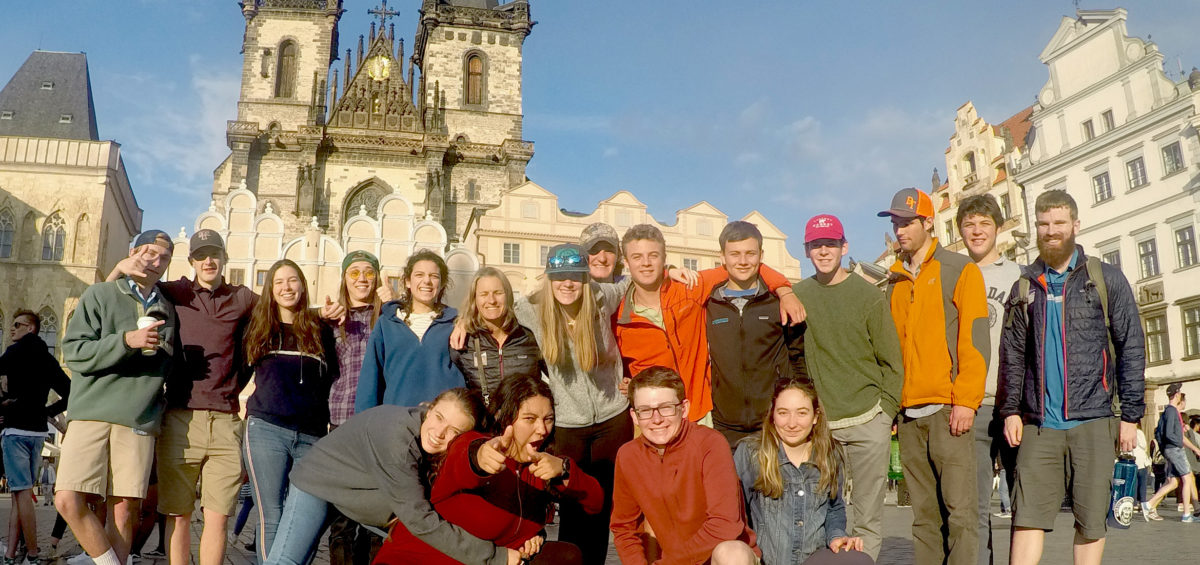For their 2018 spring experiential education trip, Telluride Mountain School 11th and 12th graders traveled to Prague in the Czech Republic; Krakow, Poland; and Berlin, Germany to study history, culture, and art. Although they visited a multitude of sites, there was particular emphasis on those most relevant to World War II and the Cold War. The team of 16 students and three teachers began their adventure in Prague, where they visited St. Vitus Cathedral at the Prague Castle. Next, students endured the rain as they biked through the streets of Prague and learned about different periods of the Czech Republic’s history including its stint as the capital of the Holy Roman Empire, changes during the Reformation, nationhood, Nazi occupation, the Cold War, Prague Spring and Velvet Revolution, and independence.
After just one night in Prague, the team dug into the gallons of grit they had collected over their time as Mountain Schoolers, and rallied for an overnight train to Krakow. They arrived at 6 am, found a hearty breakfast, then took off again on bikes in the rain to learn about the Nazi occupation of Krakow and the treatment of Jews in Poland. The crew used Krakow as a base to visit the most notorious Nazi concentration camp, Auschwitz-Birkenau. Here, students were awe-struck and moved by the museum’s tribute to the Holocaust.
From Krakow, the team flew to Berlin. Consistent with the other cities, the team began their exploration with a historical bike tour which focused on sites relevant to Nazi Germany, this time in the sun. The crew loved their guide, Ronin, and the planned three-hour tour took six because of student interest. While in Berlin, students also visited the Kathe Kollwitz Gallery, Stasi Prison, Berlin Wall, East End Gallery, Memorial to Murdered Jews, and Brandenburg Gate. In total, while on the trip, the group walked or rode around 130 miles. Many students also took advantage of early mornings to workout, draw, or journal. The trip’s emergent themes included the purpose of memorials; the influences of authority and resultant behaviors of conformity and obedience; the power of censorship; the success and failure of resistance movements; the acts of heroes, survivors, and saviors; and the effects of discrimination and propaganda. Upon returning, students wrote and presented a reflective immersion essay based on their experience at one of the sites or with one of the trip’s powerful themes. For many, it was their first European experience, and for others, it was their best.
~Jesse McTigue
Upper School Humanities Teacher





Leave a Comment